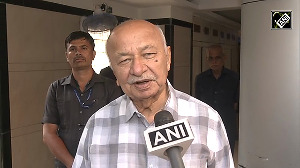Manoj Sinha, who’s often described as a down to earth man carrying his own files to office, will have to strike a balance between the regulator and the industry.

Most telecom industry executives that Business Standard spoke to about Manoj Sinha had not heard about him until the announcement on Tuesday that he would take over as the new communications minister with independent charge, replacing heavyweight Ravi Shankar Prasad.
Soon afterwards, they were full of stories on how Sinha was a performer in his previous role as a junior railway minister.
Indeed, the surprise elevation of Sinha prompted anyone who matters in telecom to quickly find out as much as possible about the 57-year-old who will now deal with large business groups such as Mukesh Ambani’s Reliance Jio, Sunil Mittal’s Bharti Airtel, Kumar Mangalam Birla’s Idea and UK-based Vodafone, among others.
If Prasad was faulted for under-performance in key areas —he was labelled the “call-drop minister’’ by Nitish Kumar ahead of Bihar elections, landing Prime Minister Narendra Modi in an embarrassing position—Sinha comes to telecom with the title of a “doer”.
Although his senior Suresh Prabhu has mostly been credited for the good work undertaken over the past year in the railways, insiders believe that Sinha’s contribution cannot be overlooked. Along with telecom, he will retain his current role in the railways.
Another area where Prasad was perceived weak is BharatNet, which is about delivering broadband connectivity to people in villages.
Sinha must deliver on the targets set for BharatNet, part of the Modi government’s ambitious Digital India mission.
Sinha, who did his civil engineering from the Indian Institute of Technology-BHU (Varanasi), is expected to bring his tech background to use in his new role.
While several instances of dispute with sections of the industry were held against Prasad, Sinha’s ability in dealing with businesses is yet to be tested.
But Sinha, an MP from Ghazipur, who’s risen from a student union leader at BHU to politics at the Centre, is unlikely to be naïve.
His latest tweets give a hint of what’s on his mind—he’s put out statements from industrialists such as Ajay Piramal and Anand Mahindra on their assessment of this government’s economic reforms. Clearly, he is paying attention to any feedback from industry.
Sinha, who’s often described as a down to earth man carrying his own files to office, will have to strike a balance between the regulator (Telecom Regulatory Authority of India) and the industry on all issues from net neutrality to call drops.
He will also have to oversee the yet-to-start payments bank at India Post.
With the Prime Minister’s Office (PMO) likely to be the driving force behind many telecom policies, Sinha is expected to be a “doer’’ in the communications ministry as well, rather than a talker.
His first job would be to ensure a smooth conduct of the biggest telecom spectrum auction ever lined up for later this year.
And certainly all eyes will be on him to see if he’s able to undo the call-drop-minister tag that his predecessor had to live with.












 © 2025
© 2025